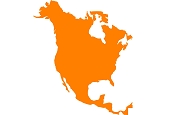Government/Policy

August 26, 2018
NAFTA: U.S and Mexico Make Progress on Auto Rules
Written by Sandy Williams
The United States and Mexico have agreed on changes to the rule of origin for NAFTA automobiles during bilateral discussions. The percentage of North American content for NAFTA autos will be increased from 62.5 percent to 75 percent. In addition, 70 percent of steel, aluminum and glass used in production of autos must be sourced from North America to receive duty-free treatment. The regional value content will be phased in over three years.
Autos manufactured by existing facilities will be subject to a 2.5 percent tariff if they do not conform to the rules of origin. The U.S. is demanding that non-conforming autos be taxed at a higher rate. To do so, however, the U.S. would have to increase its most-favored nation tariff for autos before an increase could be implemented.
Sources reported by Inside U.S. Trade say that the Section 232 investigation into imports of autos and parts is the motivation behind the demand to allow higher tariffs on non-conforming vehicles. The rule for “existing manufacturing facilities” also leaves open the possibility of higher tariffs for new plants.
Mexico has long been accused of keeping wages low in order to attract U.S. and other foreign investment. During the auto negotiations, Mexico agreed to a labor wage provision that would require 40 percent of a passenger vehicle’s assembly in Mexico to be performed by workers earning an average wage of at least $16 per hour. The assembly percentage requirement for light trucks would be 45 percent. A provision would allow 15 percent of the labor wage requirement for passenger vehicles and 20 percent for light trucks to come from salaries of workers in research and development and sales.
Canada, which has not engaged in the NAFTA negotiations for the past five weeks, is expected to give its approval to the U.S./Mexico agreement on autos.
Talks to Continue Next Week
Although progress has been made on auto issues, Mexico chief trade negotiator Ildefonso Guajardo said talks will continue into next week. The U.S. and Mexico hope that bilateral trade talks can be resolved so that Canada can re-enter discussions to complete an agreement by the end of August. The self-imposed deadline would accommodate the three-month waiting period before ratification by Congress and allow the outgoing president of Mexico to sign the agreement before his term ends on Dec. 1. If the signing is delayed until new president Andrés Manuel López Obrador takes office, negotiators fear the new administration will want changes to the agreement.
Canadian Prime Minister Justin Trudeau and Foreign Minister Chrystia Freeland said Canada is ready to continue discussions.
“We’re hearing optimism from them about the work they’re getting done on the bilateral U.S.-Mexico issues–very central there is rules of origin on cars,” said Freeland. “What we’ve agreed with the U.S. and Mexico is once the work on these bilateral issues is done, then Canada is looking forward to joining the negotiation for a swift conclusion of the NAFTA negotiations.”
Once Canada re-enters the negotiations, the controversial sunset clause and the state-to-state investment mechanism will be back on the table. The U.S. is demanding a sunset clause that would terminate the NAFTA agreement every five years unless its renewal is agreed on by all three parties. Business leaders say such a clause would deter new investment and create economic uncertainty. Canada and Mexico have strongly stated their opposition to the proposal.







